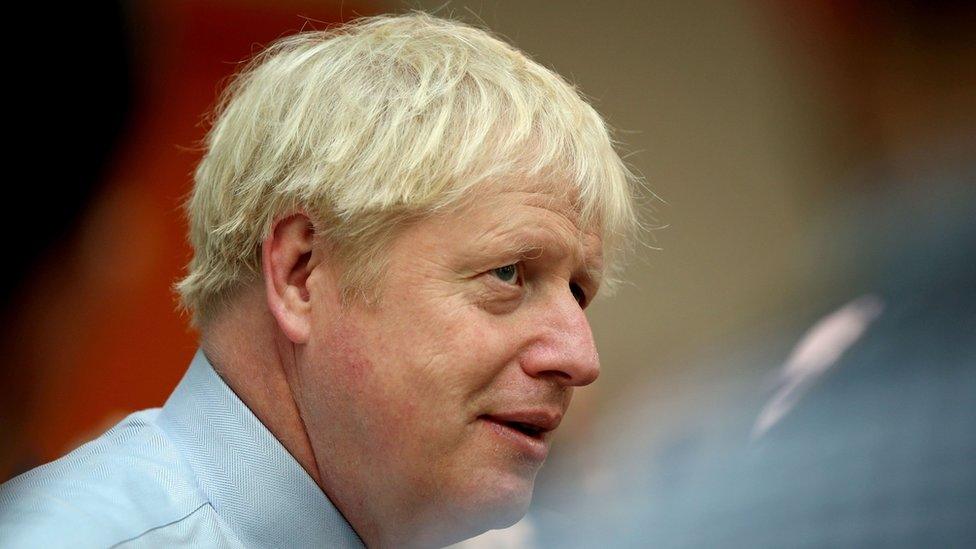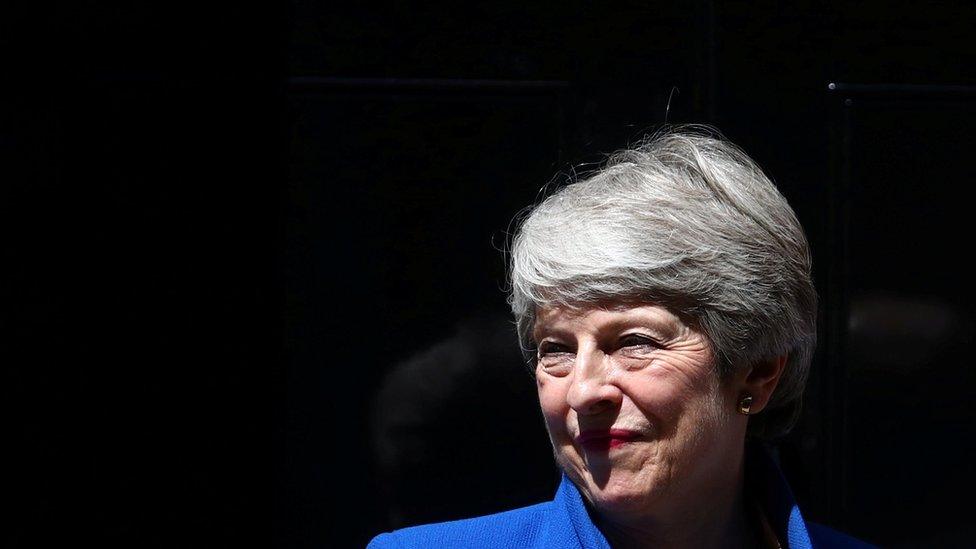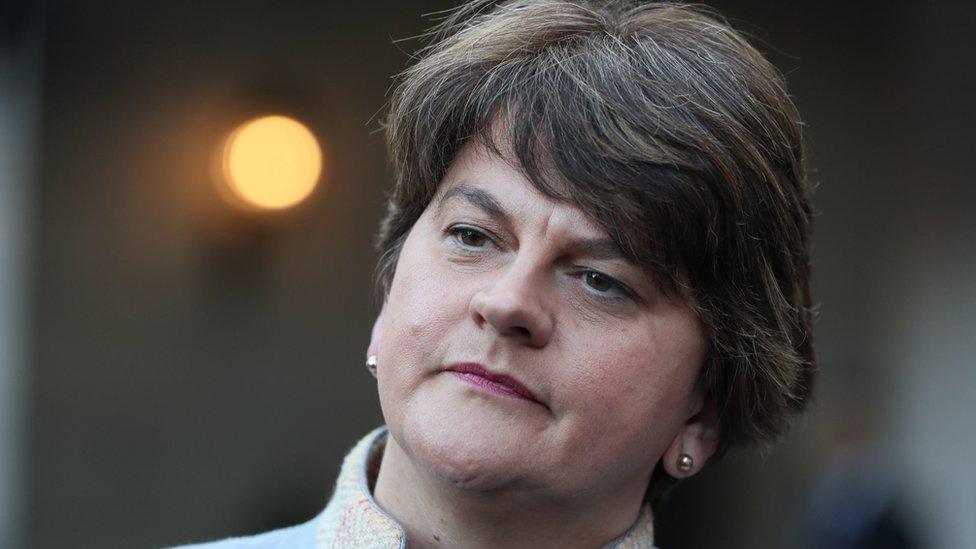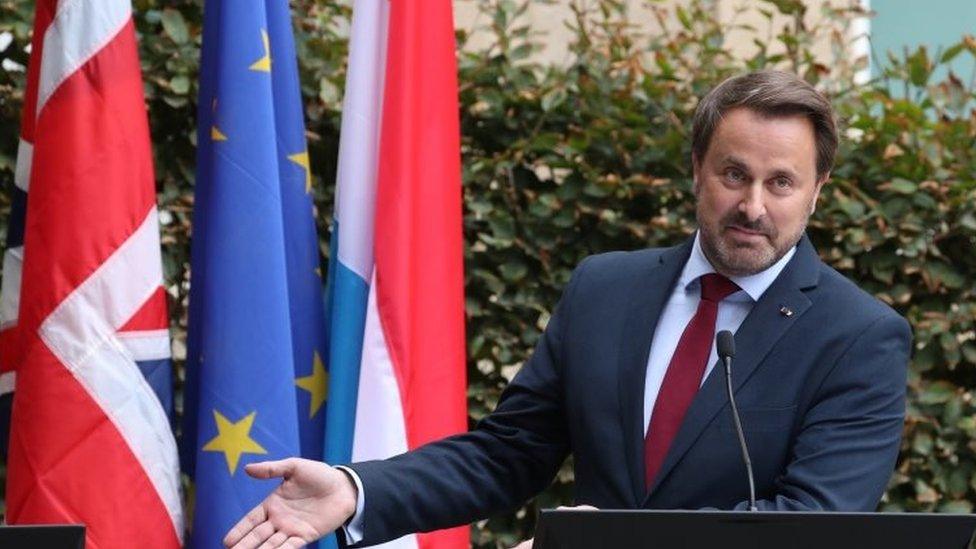Brexit: Politics, not process, will make the difference
- Published

There is something extremely retro about what's going on at the moment - the diplomatic dance between the EU and the UK.
The UK says: "Of course there's a plan and we have lots of whizzo ideas we're sharing with our friends on the continent."
The EU then declares: "There is no plan, we don't know what you want!" - while at the same time making clear, as today, that they disapprove of some of the proposals that supposedly don't exist.
If it wasn't so serious for our economy, our politics, the UK's place in the world, you might wonder if it's like the start of a school disco, when the boys are sulking in one corner, trying to look cool and pretending they don't want even to talk to any of the girls.
In the other corner, the girls are huddled, sneaking glances over to the other side of the hall, wondering who is going to be the first to make any contact.
At that moment, there's a stand-off, even though both sides know that within a couple of hours, it will be complete bedlam - especially if someone has managed to slips a few cans of cider into the loos or a snifter of peach schnapps in their borrowed handbag.
Frustration on all sides
It's retro, not just because of the echoes of misspent youth, but because Theresa May's government went through some of this same warm-up.
On countless occasions, EU leaders anywhere near a microphone demanded the UK give more information.
And UK ministers were asked again, and again, and again, what exactly do you intend to do?
The answer came repeatedly - we do have a plan, but of course we're not going to publish it until the right time.
It was frustrating on all sides frankly, including for journalists trying to find out exactly what was going on.
In fact, the time I saw Mrs May most angry was when I asked her about eight times exactly what kind of deal she was really after on a trip to China. Suffice to say, it did not end well.

Theresa May's government went through some of this same warm-up
Like everything about Boris Johnson's premiership though, this familiar process is happening at hyper-speed with an accompanying drama.
Whether that's Xavier Bettel's (un)diplomatic and frustrated showboating, or the box office Supreme Court case unfolding right now, I can't say enough times, what is happening now in politics is not normal.
But let's ignore the histrionics on all sides for a moment though, and try to understand where the state of play really is - could there, maybe, just maybe, be a deal?
There are talks taking place. There might not be official talks with official joint press conferences afterwards, but there are discussions going on and possible solutions are being discussed, kept tantalisingly hidden in the UK negotiator David Frost's binders.
And there is what the government describes as the "broad shape" of a deal, which has been put forward in recent weeks to different actors in the EU, to try to see if it could be the basis of something.
It's important to say that it is, what one very well placed source describes it as, a "selection of starters, amuse-bouches, main courses", and other items that make up a menu of different options that could be chosen from and digested.
It is not a fixed set of final proposals. But yes, you guessed it, most of them revolve around potential ways of solving the conundrum around the Irish border.
The conundrum
So what are they? Well, the first part of the possible plan is to build on a system that already exists.
The island of Ireland, north and south, is already treated as a single zone for animal health. So any livestock that goes into Northern Ireland from Great Britain is checked on entry.
No 10 is looking at what else you can include in that regime. Could you have a single zone for all food products? Could you expand it to include all manufactured goods?
There is already an electricity market for the whole island. How much can you lump into this existing regime?
This is, you guessed it, not a straightforward discussion, but the government believes it could solve part of the problem.
But no one in Whitehall, and certainly not in Brussels, believes that could solve the whole problem.
The next question, therefore, is if a part of the economy doesn't conveniently slot into that regime, how do you carry out checks without causing enormous disruption to trade?
There are conversations going on about where and how this could be feasible, with the driving principle for checks to happen away from the actual border.
But again, if you've been following this process, there have been many, many conversations about this already - none of which have reached a happy conclusion - but it is part of what the government would like to be the solution.
Again - not straightforward.
Even trickier is how to address the customs issue.
It's clear the government does not want to go back to the idea of a Northern Ireland only backstop - not just because their sometime allies, the DUP, wouldn't want to accept it, but because that would mean it would essentially be in the EU customs union.
When you hear the prime minister talk about the UK leaving EU apparatus "as a whole", this is what he is ruling out.

The DUP - led by Arlene Foster - are sometimes allies of No 10
He wants Northern Ireland to be in the UK customs territory, but the implication of this is some kind of customs border - because when goods go from Northern Ireland into the EU they need to be checked somewhere.
A border in the Irish sea? Hmmm... Deeply complicated.
And it feels unrealistically optimistic to imagine that the EU would allow these elements to be settled after the UK leaves.
Then there's the question of who would actually police and monitor all of this stuff.
Maybe the Northern Irish Assembly could be given a bigger role - that's one of the UK's ideas not necessarily beloved by the EU.
And over the longer term, there is still the hope on the UK side that those "alternative arrangements" (remember them?) could replace the need for any kind of draconian arrangements.
But there are now conversations happening between governments about the principle here, one of consent, that simply weren't happening a while ago.
Again, a million miles from a happy conclusion, but progress of a sort.
If you want to read more about the potential technical details of the possible shape of a deal, there have been thousands of column inches in the last few days devoted to it with lots of well informed speculation by different EU pundits, well plugged into to what's going on.
And there's a good explanation here by one of my colleagues in Belfast about the border conundrum:
The details of what, or might not be possible, of course do matter a lot.
And it is abundantly clear that the EU does not, at the moment, consider what they have heard (in the non-existent talks remember!) to be anywhere near enough to replace what was agreed with Mrs May.
But while the policy equations are important, the political choice on whether to try to make something work is the vital one.
And there is palpable frustration in some quarters on the UK side that not everyone in the EU actually wants to listen.
Perhaps, and who would blame them, some on the other side of the Channel would rather take their chances and wait to see what happens after the likely general election.
Parliament's voted to delay departure if there is no deal after all. Why invest much in this administration's ideas when the political turbulence could just sweep them away in any case?
Intervention
One EU insider joked tonight, "In Boris we trust?". But next week the prime minister is likely to use encounters with the major EU leaders, like Merkel and Macron, in the margins of the UN Assembly in New York to give the political dynamics a good shove.
Some sources in government reckon that kind of intervention from a big continental player is the only way there can be a resolution in time.
Another senior figure reckons, guess what, it's still all about Ireland. If they signal that they could be ready to take this set of proposals seriously, then it could be game on.
Is that realistic? It would be a pretty enormous political turnaround. Part of getting any deal done when there has been such a confrontation is to find ways of every party finding a "win".
There's talk tonight of the UK being given a deadline to publish its proposals. Who can blame the EU for making those kinds of demands for concrete and public commitments when events this side of the Channel are so turbulent.
But as ever, it's the politics, not the process, that will likely make the difference in the end.
- Published16 September 2019

- Published16 September 2019
